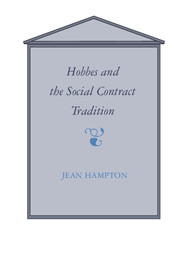Book contents
- Frontmatter
- Contents
- Acknowledgments
- A note on texts and references
- Introduction
- 1 “Of Man”: the foundation of Hobbes's political argument
- 2 What is the cause of conflict in the state of nature?
- 3 The shortsightedness account of conflict and the laws of nature
- 4 The argument for absolute sovereignty
- 5 Authorizing the sovereign
- 6 Hobbes's social contract
- 7 The failure of Hobbes's social contract argument
- 8 Can Hobbes's argument be salvaged?
- 9 How the traditional social contract argument works
- Bibliography
- Index
3 - The shortsightedness account of conflict and the laws of nature
Published online by Cambridge University Press: 05 June 2012
- Frontmatter
- Contents
- Acknowledgments
- A note on texts and references
- Introduction
- 1 “Of Man”: the foundation of Hobbes's political argument
- 2 What is the cause of conflict in the state of nature?
- 3 The shortsightedness account of conflict and the laws of nature
- 4 The argument for absolute sovereignty
- 5 Authorizing the sovereign
- 6 Hobbes's social contract
- 7 The failure of Hobbes's social contract argument
- 8 Can Hobbes's argument be salvaged?
- 9 How the traditional social contract argument works
- Bibliography
- Index
Summary
Everyone in our unit thought we would beat the Japanese inside six months. It just goes to show that man's egotism is exceeded only by his stupidity.
U.S. Army veteran of World War IIWhat if we could come up with an account of conflict that had all of the advantages of the rationality and passions accounts but none of either account's disadvantages? Such an account would fit with Hobbes's psychological premisses and yet generate sufficient warfare in the state of nature to make institution of an absolute sovereign necessary to end it. Moreover, it would explain this conflict while still making it possible for Hobbes to argue that people would be able to carry out that institution. I shall try to construct such an account, which I call the shortsightedness account, in this chapter. And I believe there is enough textual evidence to indicate that Hobbes not only would welcome this account of conflict but may even have been confusedly trying to present it himself in both De Cive and Leviathan.
The discussion of conflict in this chapter will also have another purpose. Although Hobbes characterizes the natural state as war-prone, violent and insecure, he nonetheless argues that people in this state will recognize the validity of certain “laws of nature” dictating moral behavior. As noted in Chapter 1, ever since the publication of Leviathan, Hobbes's readers have been mystified as to why the existence of valid moral laws does not render the state of nature relatively orderly and peaceful, rather than chaotic and violent.
- Type
- Chapter
- Information
- Hobbes and the Social Contract Tradition , pp. 80 - 96Publisher: Cambridge University PressPrint publication year: 1987



